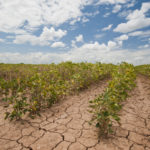 Efforts to diminish fossil fuel usage and enhance air quality may not yield the straightforward outcomes presumed, warns a study by Penn State. Their comprehensive exploration of nearly 30,000 simulated future scenarios reveals that certain climate mitigation measures could inadvertently have adverse health effects in specific geographical areas.
Efforts to diminish fossil fuel usage and enhance air quality may not yield the straightforward outcomes presumed, warns a study by Penn State. Their comprehensive exploration of nearly 30,000 simulated future scenarios reveals that certain climate mitigation measures could inadvertently have adverse health effects in specific geographical areas.
“In general, reducing fossil fuel use is good for climate mitigation and good for cleaning up the air, and the modeling studies have always found health benefits from climate mitigation,” the researchers explain. “But in this study, for the first time, we were able to see potential co-harm occur in a certain part of the scenarios.”
Reducing fossil fuel usage
The researchers discovered that reducing fossil fuel usage may require substantial land use changes to cultivate bioenergy resources like algae, corn stalks, and barley straw for biofuel production.
However, this could lead to increased deforestation in areas like Russia and Canada, resulting in worsened air quality. Consequently, residents in these regions may experience higher rates of respiratory and cardiovascular diseases, potentially leading to premature deaths.
The researchers employed an exploratory ensemble approach to obtain a comprehensive understanding of various future scenarios by sampling multiple variables at different levels, including carbon emissions.
“Instead of using narrative-based scenarios, which tend to ask questions such as, ‘What if we have a high inequality world?’ or ‘What if we have a low carbon development world?’ we developed a large ensemble of scenarios,” the researchers explain. “This approach couples models of climate, energy and health to explore a wide range of plausible futures.”
Land-use assessment
Utilizing the Global Change Analysis Model, an open-source integrated assessment model, the researchers embarked on an evaluation of energy and land system alterations across 32 geopolitical regions. Subsequently, they conducted an in-depth assessment of air quality and health impacts spanning nearly 200 countries.
In this study, the authors acknowledge the profound uncertainty that envelops the future. While the exact probabilities of potential scenarios entailing health co-harms remain unknown, their findings shed light on the prospect of unintended consequences arising from climate mitigation efforts.
“What we find especially useful is that now we can start to think about the levers we have, and how we can use them to mitigate harmful impacts and to embrace the benefits,” they explain. “If we go for the bioenergy-heavy future, then we really need to pay attention to how we manage land.”